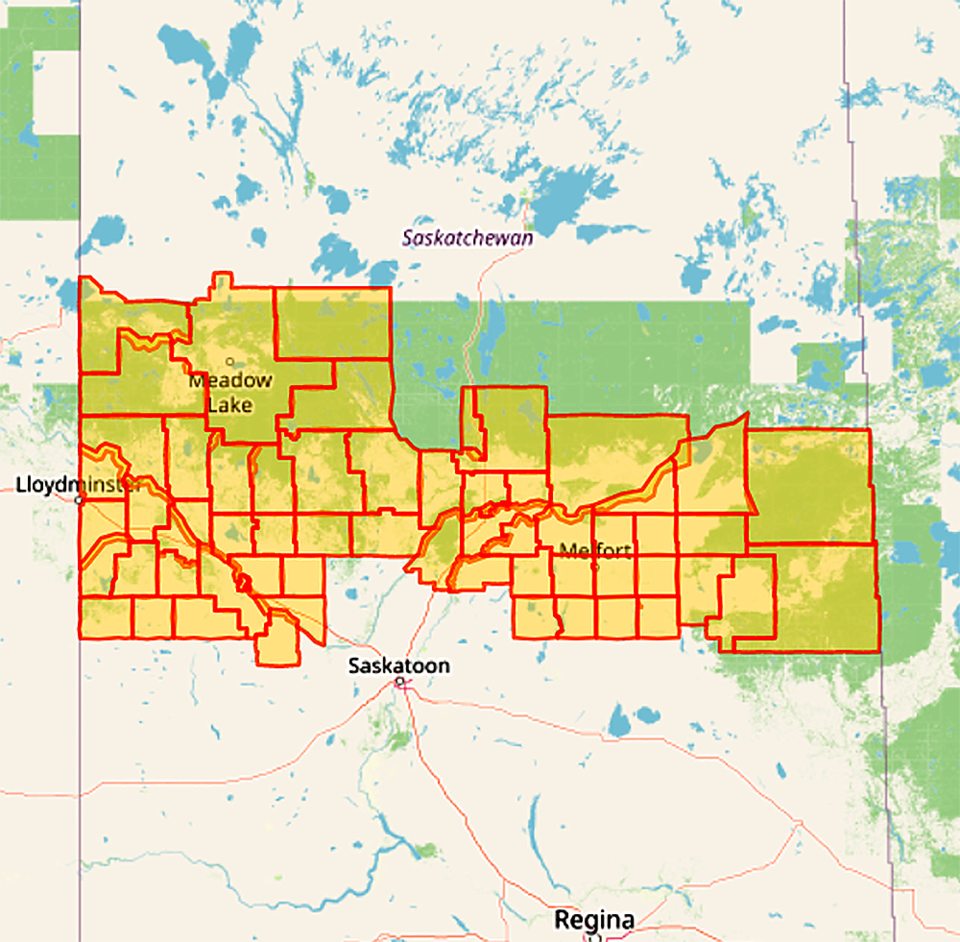NORTHERN SASKATCHEWAN — Due to hot, dry conditions and an extreme fire risk that covers most of northern Saskatchewan, the Saskatchewan Public Safety Agency has issued a provincial fire ban for Crown lands, provincial parks and the Northern Saskatchewan Administration District, effective immediately.
The fire ban includes any open fires, controlled burns and fireworks.
Many municipalities already have fire bans in place.
"While many people are looking forward to the long weekend, the decision to implement a fire ban is necessary in order to protect lives, communities, major infrastructure and resources from wildfire," SPSA President and Fire Commissioner Marlo Pritchard said.
There are currently 28 wildfires burning in the province. To date, Saskatchewan has had more than double the amount of wildfires usually seen at this time of year.
Earlier in the day, the SPSA advised individuals to avoid the area in and near Besnard Lake due to a fast-moving fire burning with extreme fire intensity. With a single access route in and out of the area, there is an increased threat of entrapment. The fire is called 23LA - WISTIGO Fire.
People can find the latest fire risk maps and municipal fire ban map at .
Anyone who spots a wildfire can call 1-800-667-9660, dial 911 or contact their closest SPSA Response Area office.
Smoke alert
Smoke is causing or expected to cause poor air quality and reduced visibility. A cold front forecast to slump southwards through Saskatchewan will concentrate forest fire smoke from wildfires over the northern prairies along it. As this front progresses southwards Tuesday and into Tuesday evening, it will drag a band of thicker smoke through central regions of Saskatchewan.
Stop or reduce your activity level if breathing becomes uncomfortable or you or someone in your care feel unwell. Contact your health care provider or local health authority if you develop severe symptoms or need advice.
Check the Air Quality Health Index (AQHI) and monitor your symptoms. People respond differently to smoke. Mild irritation and discomfort are common, and usually disappear when the smoke clears. Drinking lots of water can help your body cope with the smoke.
If you have an HVAC system in your home, use the highest rated MERV filter for your system (ideally rated 13 or higher) and set the fan to recirculate air constantly. You can also use a portable High Efficiency Particulate Air (HEPA) air cleaner. Keep your doors and windows closed if the temperature in your home is comfortable.
Take a break from the smoke at a location in your community where you can find clean, cool air.
If you must spend time outdoors, a well-fitted respirator type mask (such as a NIOSH certified N95 or equivalent respirator) that does not allow air to pass through small openings between the mask and face, can help reduce your exposure to the fine particles in smoke. These fine particles generally pose the greatest risk to health. However, respirators do not reduce exposure to the gases in wildfire smoke. It is important to listen to your body and reduce or stop activities if you are experiencing symptoms.
Be sure to check on people in your care and those around you who may be more susceptible to smoke.
Reduce sources of indoor air pollution. If you can, avoid smoking or vaping indoors, burning incense and candles, frying foods, using wood stoves and vacuuming. Dust on indoor surfaces can be removed by wiping and wet mopping during a pollution episode.
If you experience any feelings of stress, anxiety, or depression, contact your mental health care provider for advice or visit
Wildfire smoke can be harmful to everyone’s health even at low concentrations. Everyone can take action to reduce their exposure to wildfire smoke.
People with lung disease (such as asthma) or heart disease, older adults, children, pregnant people, and people who work outdoors are at higher risk of experiencing health effects caused by wildfire smoke. Speak with your health care provider about developing a management plan for wildfire smoke events and maintaining a supply of necessary medications at home and always carrying these medications with you during wildfire season.
Please call HealthLine 811 for advice on health risks, symptoms and precautions associated with air quality.
Visit for information on how to reduce your health risk and your personal contribution to pollution levels, as well as for current and forecast AQHI values.


